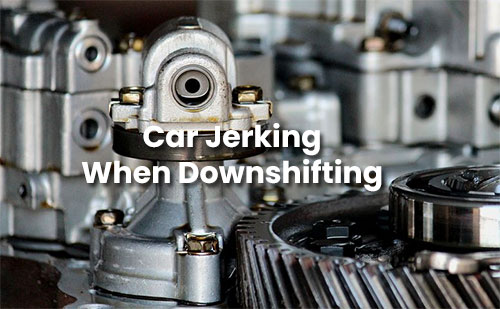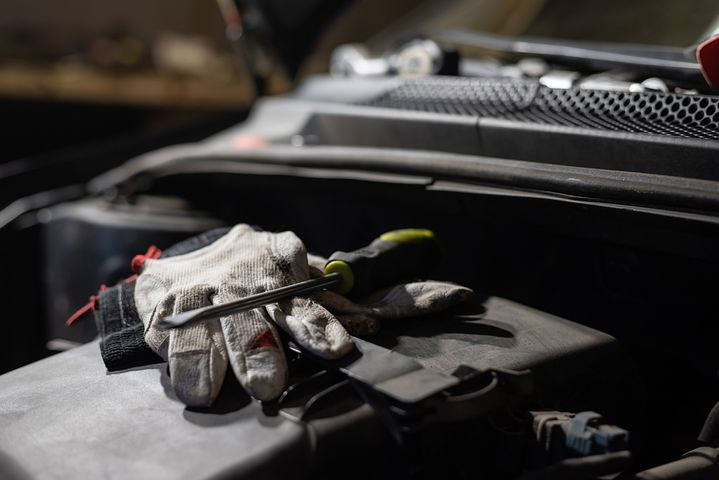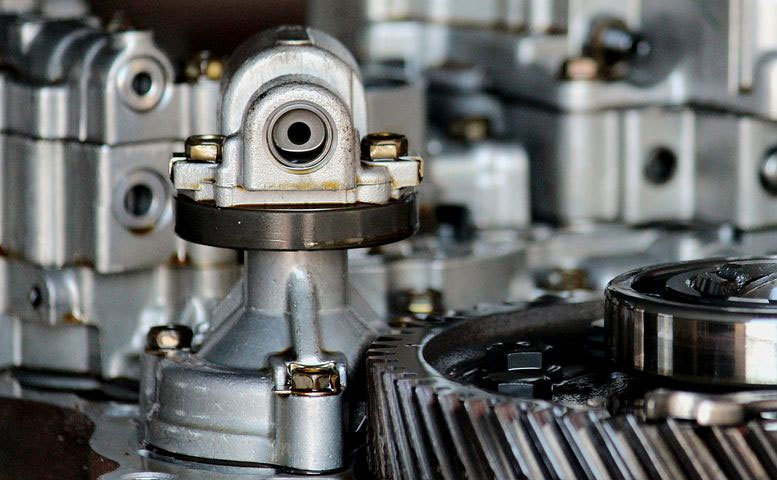Why Does Car Jerk When Downshifting or Slowing Down?

When you downshift in a manual transmission vehicle, you've probably noticed that it jerks. Your engine was running a little slowly in the higher gear, which is why this happened. You must either slow down the vehicle or rev up the engine when you downshift (or both). The jerking occurs when a slow engine slows down a fast car, and vice versa.

Several problems related with jerky cars
Why does my automatic car jerk when downshifting?
The main causes of kicks and jerks in automatic transmissions are typically related to the transmission fluid. The fluid not only lubricates the transmission hard parts, but also serves as a working fluid for the system. If there is an issue with the quality or level of the fluid, it can cause a number of problems including kicks and jerks.
Car jerk when decelerating / slowing down?
The mass air flow sensor is a unit in the intake system that monitors air intake as it is mixed with fuel prior to being injected into the motor. The mass air flow sensor is responsible for measuring the amount of air flowing into the engine so that the engine can adjust the amount of fuel being injected. If the mass air flow sensor is not working properly, it can cause the engine to run lean or rich, which can lead to engine damage.
The sensation of the vehicle jerking when slowing to a stop is often indicative of a transmission-related issue. This can be due to a bad valve body or TCM in both automatic and manual transmissions. The cause of this sensation is the transmission attempting to regulate its gearing and speed to the situation at hand.
Car jerk when I slow down then speed up?
Dirty fuel injectors are one of the most common reasons for a car's accelerator to become jerky. When an injector becomes dirty, it can cause the engine to misfire, resulting in a loss of power when trying to accelerate from a stop or drive at a consistent speed.
Transmission related issues that cause car to jerk
If your car is jerking, it could be because of a malfunctioning transmission control module. The transmission control module controls the shifting as you accelerate, so if it's not working properly, you may experience delays with shifting. This can cause your car to jerk when you're trying to accelerate. While this is not as common of an issue as some of the others on this list, it's still worth checking if you're experiencing car jerking and you can't figure out why.
Low transmission fluid cause jerking?
Automatic transmissions that shift hard, jerk or shake during a shift change may mean your transmission fluid needs changed or fluid level is low. A lack of transmission fluid could cause the gears to slip and not engage properly, which would lead to a jerking sensation. In manual transmission vehicles, abnormal gear shifts could indicate damaged gear synchros, worn clutches or other, more severe issues. Worn out clutches could also cause slipping and result in a jerking feeling when shifting gears.
How do I stop my car from jerking?
If your car is jerking, it is likely because you are putting the engine into neutral gear and coasting while using your breaks. This causes the vehicle to jerk or the gears to grind. Instead, shift back down through the successive gears until you're in the gear that's best suited to maintain the speed that traffic is moving in. Don't skip gears, as this will only exacerbate the problem.
Can downshifting damage clutch?
Well, the short answer is Yes. If you're constantly downshifting, it will damage your clutch. Every time you use it, it wears a little bit. However, this is no different than using the clutch during normal driving. If you're worried about the clutch, try to keep your car in one gear as much as possible. This will avoid engine braking. The less you use the clutch, the longer it will last.
Grinding Jerking or Shaking
When a car's transmission is dying, it may exhibit a few different symptoms. One common symptom, especially in manual transmission vehicles, is gear grinding. Automatic transmissions may also fail gradually, with some hesitation during gear shifts. This hesitation can be described as a "slipping" sensation. Eventually, the vehicle may begin trembling or shaking during shifting gears.
A car's dying transmission can feel like a loss of power while driving, gears slipping in and out of place, or the car jerking when shifting gears. If you notice any of these issues with your car, it's important to take it to a mechanic as soon as possible to have the transmission checked. The car's suspension is also a factor to check.

Other possible causes of why car jerking when slowing down
1. Dirty or old spark plugs
Spark plugs need to be replaced every time the engine is serviced, and they can become dirty over time from combustion oil and other debris. If this is the case, your car will not idle properly and may even stall.
2. Faulty ignition coil
This component helps start the engine and can sometimes become defective. If the problem is severe, it may need to be replaced. In some cases, a simple adjustment to the coil's settings may resolve the issue.
3. Vacuum leaks
A vacuum leak can occur when a seal between the vacuum pump and the vacuum line breaks, allowing air to enter the system. This air can create a "vacuum" that pulls the car forward, causing the jerking.
4. Worn out oxygen sensor
This can cause the car to act erratically and may even cause a crash. If you notice this happening, it is important to have your car checked by a mechanic to make sure that the sensor is actually worn out and needs to be replaced.
5. Mass air flow sensor issues
This sensor monitors the amount of air flowing through the engine, and if it detects an issue (like a clogged filter), it can send a signal to the computer that controls the brakes, causing them to act erratically. In some cases, this problem may only occur when the car is first started up or when it's being driven in cold weather, so it's important to have it checked by a mechanic if you experience these problems.
6. Dirty throttle body
Throttle bodies are responsible for controlling the flow of air and fuel into the engine, and can become clogged over time. This can cause the engine to sputter and jerk when braking or accelerating, making driving difficult. To prevent this from happening, regularly clean your throttle body using a throttle body cleaner or degreaser.
7. Clogged fuel filter
This can be a result of debris buildup over time, or from a recent spill. If the filter cannot catch all of the fuel as it flows through the system, it will cause the car to jerk when braking.
8. Exhaust leaks
These can occur from a number of different sources, such as a loose gas cap, faulty gaskets or even a cracked pipe. If the leak is small, it may only cause a minor jerk when you brake. But if the leak is large, it could cause your car to start to pull to one side when braking, which could lead to an accident.
9. Transmission problems
If the car is not shifting properly, it could cause the engine to overheat and eventually fail. In addition, if there is an issue with the gears themselves, the car might jerk when braking or accelerating. If this is a recurring problem, it may be necessary to have the transmission replaced.
10. Catalytic converter issues
If the converter is not functioning properly, the car's engine will have to work harder to slow down, which could cause the jerking. In addition, if the converter has been damaged in some way, it may not be able to completely break down pollutants and create emissions, which would also cause the car to jerk when braking. If you notice any unusual behavior with your car's brakes while driving, please bring it in for a checkup so that we can determine the root cause of the issue.
Summary
Car jerking when downshifting is a term used to describe a situation in which the driver of a manual transmission-equipped vehicle attempts to downshift too quickly, causing the engine to rev excessively and potentially causing damage. This can happen when the driver does not properly match the engine speed to the road speed before attempting to downshift, or if they simply try to downshift too quickly. Either way, the result is the same: the engine revs excessively, potentially causing damage. Jerk When Downshifting is a dangerous situation that can easily be avoided by taking the time to match the engine speed to the road speed before attempting to downshift, and by downshifting slowly and smoothly.





